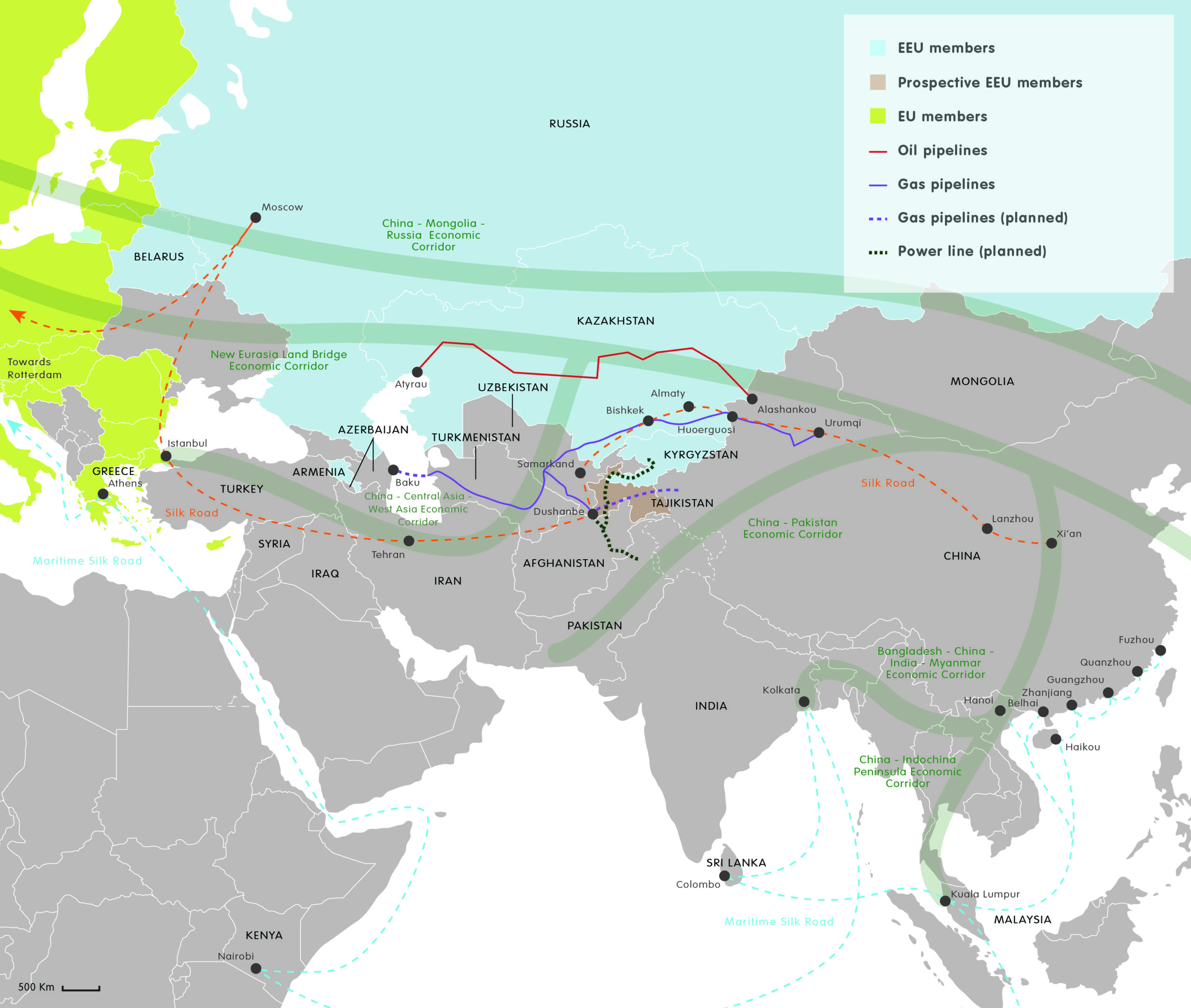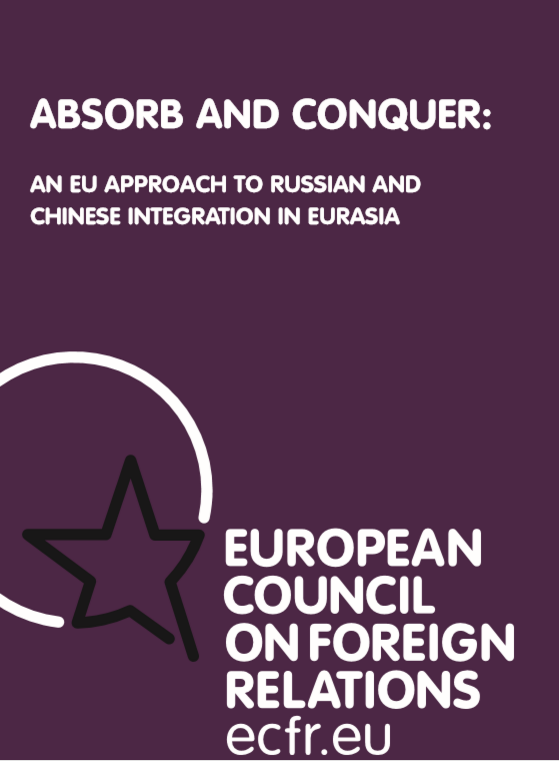Absorb and conquer: An EU approach to Russian and Chinese integration in Eurasia
Europe shouldn’t be afraid of Russian and Chinese efforts to integrate the Eurasian landmass, but should absorb them into its international order
Europe shouldn’t be afraid of Russian and Chinese efforts to integrate the Eurasian landmass, but should embrace these initiatives and absorb them into its international order, making use of its huge market, soft power, and long experience of regional integration.
Moscow’s “Eurasian Economic Union” aims to create a Russian-dominated bloc to rival the EU, while Beijing’s “New Silk Road” wants to use financial power to place China at the heart of Eurasia. So far, Europe has treated these projects as unwelcome competition, and kept its distance.
“Absorb and conquer: An EU approach to Russian and Chinese integration in Eurasia”, a new policy paper from the European Council on Foreign Relations, argues that this is a mistake. Steering clear of these projects could simply push Russia and China closer together – forming a dangerous counterweight to the EU.

Based on extensive interviews with policymakers and business leaders across Eurasia – focusing on Azerbaijan, Greece, Kazakhstan, Serbia, Turkey, and Ukraine – the report sets out how Europe can turn Eurasian integration to its advantage. Though the Russian and Chinese projects are meant to compete with the EU, Europe is playing on its home turf – when it comes to multilateral integration projects, it has more experience than anyone.
Europe should carve out its own role in Central Asia, deepening its relationship with key nations such as Kazakhstan. These countries need the EU’s market, and look to Europe to protect them from Russian – and to a lesser extent Chinese – control. Europe should ensure that no single country controls all energy routes through Eurasia, and back China’s projects in order to reduce Russia’s control over the region. Member states and EU bodies should invest in the New Silk Road, leveraging their money to ensure that the project meets European standards.
Finally, Europe should set up a three-way mechanism for cooperation between the EU, EEU, and the New Silk Road, embracing the competition and drawing Eurasia further into its orbit.
The paper’s lead authors – Mathieu Duchâtel, François Godement, Kadri Liik, Jeremy Shapiro, Louisa Slavkova, Angela Stanzel and Vessela Tcherneva – said:
“The prospect of China and Russia failing to integrate the vast Eurasian continent should not make Europe feel better about the region or about itself. European cooperation with both the Russian and Chinese projects is necessary for progress in Eurasia, and, if properly structured, can promote European interests.”
“The EU should respond to Russian and Chinese initiatives by absorbing them into an inclusive order based on rules and predictability, bounding the competition with cooperation, and making the competition about what the EU does best. Russia invades and China buys; the EU negotiates, monitors, and implements. It is an impressive form of power, even if it doesn’t make great television.”
“Europe’s approach will depend on which problem it fears most: Russian political hegemony or Chinese economic hegemony. Should Europeans encourage Russia’s security role in Eurasia to counter the rise of Islamic fundamentalism and reduce Chinese influence? Or does the danger that Russia could be tempted to reunify the post-Soviet space outweigh these merits?”
“In the end, Eurasian integration remains a distant prospect. The political obstacles to Russia, China, or the EU realising their goals of integrating the region are daunting. Instability, historic rivalries, and corruption haunt both Russia and China – not to mention the competition between them. But progress towards a certain degree of Eurasian integration is both possible and in Europe’s interests.”
In this collection:
- Eurasian integration and the EU
- Azerbaijan: Perspectives on Eurasian integration
- Greece: Perspectives on Eurasian integration
- Kazakhstan: Perspectives on Eurasian integration
- Serbia: Perspectives on Eurasian integration
- Turkey: Perspectives on Eurasian integration
- Ukraine: Perspectives on Eurasian integration
The European Council on Foreign Relations does not take collective positions. ECFR publications only represent the views of their individual authors.



